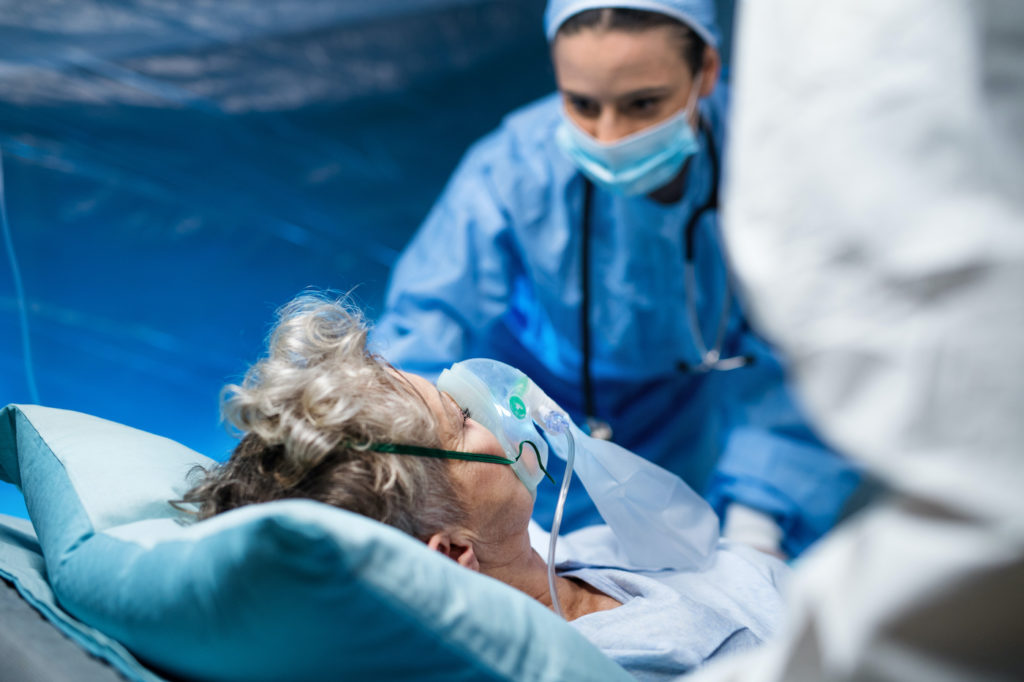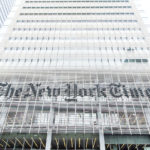It has been just over two years since we took The Physician’s Pledge, a 21st-century adaptation of the Hippocratic Oath. My fellow new doctors and I committed ourselves to the service of humanity and respect for human life. We were only getting started, learning the ropes, and getting used to being a doctor. We were barely into our senior year in residency when all normalcy ceased.
I work as an internal medicine resident at a government hospital in Manila, Philippines. Where I live schools and most offices are closed. Restaurants and malls have ceased operating. Commercial flights have been cancelled. Streets and roads lie nearly empty. This apocalyptic scene did not remain isolated to my native Philippines and the rest of Asia. The unprecedented lockdowns quickly spread across the world in response to the novel coronavirus disease (COVID-19) pandemic. The world seemed to lie still. Yet hospitals continue to run because illness never goes out of fashion. We continued attending to patients with all sorts of problems. I myself served in an intensive-care unit with patients hooked up to beeping machines and all sort of contraptions. Soon things would change even more dramatically. In fact, the situation remained in constant flux, with new plot twists each day.
As the number of COVID-19 cases in the country rose by the day, we braced ourselves to receive a large number of patients who probably had the infection. The hospital reduced staffing to one-third to minimize potential exposure. Entire wards were converted to units requiring the strictest personal-protective-equipment (PPE) and infection-control policies. Everything began to look like war, and we were girding our loins for battle. While I am a few days from being assigned to the front lines as of writing, as an assistant chief resident I constantly receive the feedback, concerns, and frustrations of my colleagues who care directly for patients with suspected or confirmed COVID-19.
The Physician’s Vocation
Start your day with Public Discourse
Sign up and get our daily essays sent straight to your inbox.When I was younger, I formed a mental image of what it meant to be a doctor by tagging along with my dad. Apart from doing surgeries, my father would see patients in his clinic or during rounds on the wards. His visits seemed to make them feel better. What struck me with each encounter was the trust put by another human being in a doctor’s ability to heal, encourage, and give comfort. My father’s desire to help people led me to pursue my childhood dream. In June 2013, our class started our medical school journey. We watched Patch Adams and read Francis W. Peabody, who wrote, “The secret of the care of the patient is in caring for the patient.” We learned about health systems and the social determinants of health. We brimmed with the idealism of young doctors who would someday serve the underserved. But we never imagined how the world would turn out not long after we received our MDs.
A seemingly benign and downplayed new disease turned out to be worse than the flu. The virus continued to claim the lives of thousands globally. The coronavirus pandemic came closer and closer to home. Statistics would then take familiar names and well-known faces: fellow doctors, former professors, parents of friends who were afflicted with or tragically succumbed to COVID-19. The closeness of our own mortality became more palpable. The danger in our work was never more evident. Day in and day out, we put our lives at risk to fulfill what we swore to. As the late Edmund D. Pellegrino, a physician and philosopher, wrote: “Every day that we practice medicine, we make an ‘act of profession,’ a public promise that says we demand more of ourselves as persons than a mere occupation requires.” At one point in our lives—not too long ago for many of us—we made a free decision to enlist in this ancient profession and to be called “a friend of mankind.”
The fact that it feels natural to a doctor to put his patient’s good before his own reveals much about the profession of medicine. We come to understand that medicine is something that we not only choose, but that we are called to do. It is a vocation. Dr. Donald W. Landry, an accomplished clinician and researcher at Columbia University, puts it eloquently: “The vocation of the physician, at its core, is little changed in the millennia since the Oath of Hippocrates was first uttered: to give care to another person to the utmost of one’s abilities, respecting the innate dignity of that person and all the while subordinating one’s personal wants in a gift of self.” While we probably had not anticipated it when we interviewed for medical school, the COVID-19 pandemic is an opportune time to realize our vocation to medicine. Now more than ever, we are in a privileged position to serve our brothers and sisters.
Fortitude and Prudence: Virtues of a Physician
According to Pellegrino, the good physician possesses various virtues such as fidelity, benevolence, truthfulness, compassion, courage, and practical wisdom. Let me briefly consider the cardinal virtues of fortitude and prudence as they relate to the doctor amid a pandemic. While we recognize our sacred duty to the sick, fear during these dark times is inevitable. We signed up to be doctors, but now we are sent into the battlefield. The language has increasingly become that of combat. One medical school dean was quoted as saying, “This is how men and women are sent to war.” We are up against an unseen opponent, and despite the fear for our lives and the anxiety of separation from our loved ones, we remain at our posts.
Fortitude is strength of character. In the Nicomachean Ethics, courage is best manifested in the face of battle, “in the midst of the greatest and most noble of dangers.” Aristotle describes the courageous man as “he who fearlessly confronts a noble death, or some sudden peril that threatens death.” Physicians grappling with their own frailty need courage in tending to the sick and dying. In this pandemic, it is not only the internists, the infectious disease specialists, the intensivists and the pulmonologists who go to battle. All doctors are called to take arms like military reserves. At a recent teleconference on allocating scarce resources, Filipino bioethicist Dr. Angeles Tan-Alora agreed that doctors should be ordered to care for COVID-19 patients outside of their field of specialty, insofar as their competencies allow. Even our colleagues from pathology, radiology, and dermatology are now tasked to triage new patients, to perform nasal swabs for testing, or to attend to COVID-19 patients in the wards. In our country, medical interns do not yet hold licenses, and so the Association of Philippine Medical Colleges earlier announced their retreat. In spite of this, many chose to stay and volunteer in already overworked hospitals. We salute them for their bravery.
Doctors are well-acquainted with sacrifice, but the pandemic asks us to give up more. While most families remain together at home, doctors are away from theirs for weeks. Young mothers weep at being separated from their toddlers. The consolation of family life is replaced with the duty to care for ill strangers. After hours inside an uncomfortable suit, many physicians divest and retire at day’s end in isolation. Yet no matter how difficult and ever-changing the situation, it continues to amaze me how doctors, nurses, and other health professionals continue to cooperate. While darkness abounds, the stories of determination and valor shine light.
Although unafraid to engage in skirmishes, the good doctor is also not reckless. Prudence guards against foolishness and a false sense of heroism. Just as a soldier does not fight naked, the doctor must shield himself with adequate personal protective equipment (PPE). The treating physician must give what medical school has taught us to give: the right medicine, to the right patient, at the right time. Given the lack of a proven remedy, the doctor should not be too quick to offer treatment without balancing potential benefits and harms.
Doctors must exercise right judgment to the best of their knowledge, and with it the humility to recognize their limitations. They may solicit the assistance of more experienced colleagues; when the outlook appears grim, they must accompany the patient’s family toward realistic expectations.
We do not know how long the scourge of COVID-19 will last. We do not know when and if things will return to the same way they had been. Extraordinary circumstances notwithstanding, the duty of a physician to the patient’s life and health is unchanged. Whatever awaits us in the end, with the hope of victory, may we continue doing what physicians are called to do: the right thing, at the right time, in the right amount, for the right purpose, with the right means. Put more simply, may we live virtuously. The original Oath of Hippocrates ends with a call for a blessing “to partake of life fully and the practice of my art, gaining the respect of all men for all time.” May it be so.














